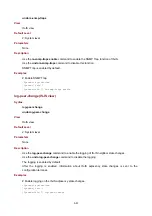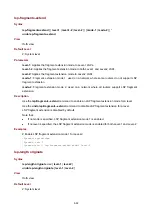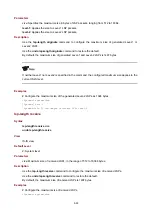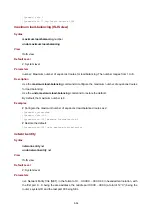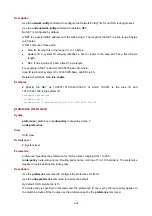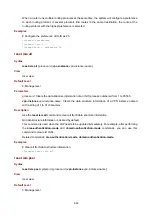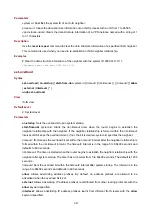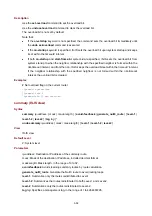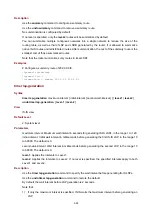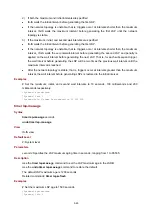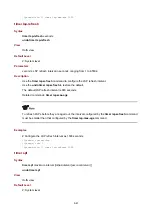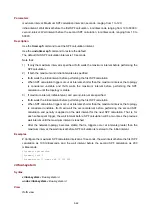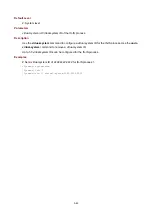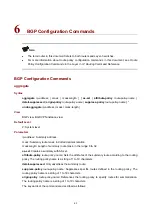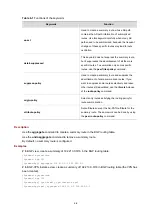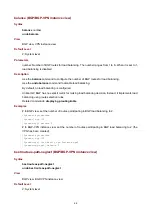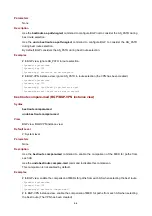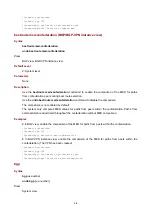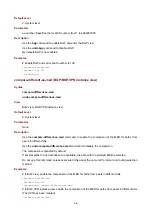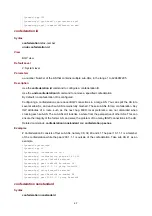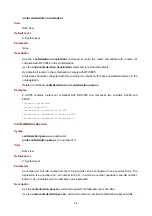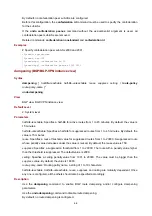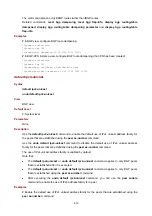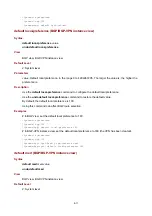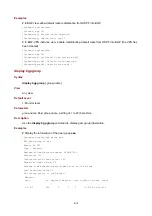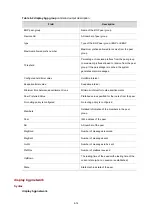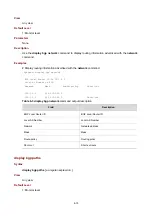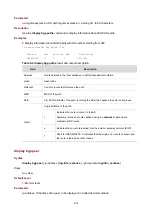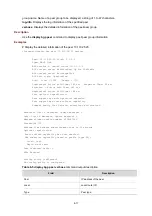
6-2
Table 6-1
Functions of the keywords
Keywords
Function
as-set
Used to create a summary route, whose AS path
contains the AS path information of summarized
routes. Use this keyword carefully when many AS
paths need to be summarized, because the frequent
changes of these specific routes may lead to route
oscillation.
detail-suppressed
This keyword does not suppress the summary route,
but it suppresses the advertisement of all the more
specific routes. To summarize only some specific
routes, use the
peer filter-policy
command.
suppress-policy
Used to create a summary route and suppress the
advertisement of some summarized routes. If you
want to suppress some routes selectively and leave
other routes still advertised, use the
if-match
clause
of the
route-policy
command.
origin-policy
Selects only routes satisfying the routing policy for
route summarization.
attribute-policy
Sets attributes except the AS-PATH attribute for the
summary route. The same work can be done by using
the
peer route-policy
command.
Description
Use the
aggregate
command to create a summary route in the BGP routing table.
Use the
undo aggregate
command to remove a summary route.
By default, no summary route is configured.
Examples
# In BGP view, create a summary of 192.213.0.0/16 in the BGP routing table.
<Sysname> system-view
[Sysname] bgp 100
[Sysname-bgp] aggregate 192.213.0.0 255.255.0.0
# In BGP-VPN instance view, create a summary of 192.213.0.0/16 in BGP routing table (the VPN has
been created).
<Sysname> system-view
[Sysname] bgp 100
[Sysname-bgp] ipv4-family vpn-instance vpn1
[Sysname-bgp-vpn1] aggregate 192.213.0.0 255.255.0.0

